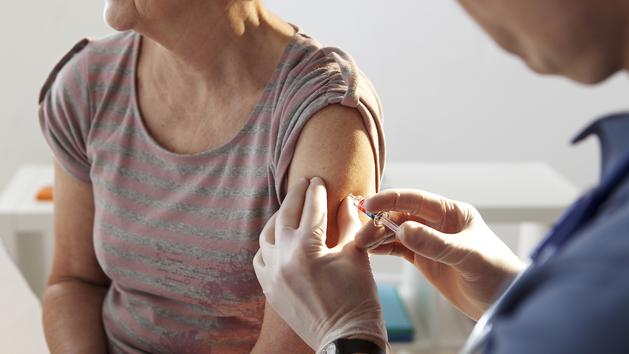Richard Hatchett, director general of the Coalition for Innovation in Epidemic Preparedness (Cepi), is
"concerned"
: his job is to ensure that future vaccines against Covid-19 will be shared fairly around the world, but the United States, Europe and other rich countries have already reserved the first doses.
Read also: Covid-19: the vaccine from the Institut Pasteur will finally be tested on humans
Just seven months after the onset of the pandemic, and even before clinical trials of experimental vaccines had been completed, a few developed countries (United States, European Union, United Kingdom, Canada, Japan) ordered a total of 'at least 3.1 billion doses, according to an AFP count.
Donald Trump was a pioneer: his government signed contracts guaranteeing at least 800 million doses from six manufacturers, for 330 million inhabitants, to be delivered by the end of the year for a part.
"The United States is potentially in a situation of having too many vaccines if all the projects in which it has invested are successful"
, Richard Hatchett said from London in an interview with AFP.
This American says he understands that national leaders serve their citizens first, but calls on Washington to behave as a world
"leader"
and to share its doses with other countries.
"We must persuade world leaders that the first limited quantities of vaccines will have to be shared globally, we must not have a handful of countries have their hands on all the vaccines that will be produced in the first half of 2021"
, pleads Richard Hatchett , who absolutely wants to avoid the scenario of 2009, when rich countries had reserved the first vaccines against the H1N1 flu.
“I am concerned,” he
adds.
Read also: Covid-19 vaccines: the EU will compensate laboratories in case of problems
A device was set up to buy and distribute two billion doses equitably in 2021, called Covax, at the initiative of the World Health Organization, Cepi and the Alliance for the vaccine, Gavi.
92 developing countries and 80 developed countries have joined, and the European Union announced on Monday a contribution of 400 million euros.
But the United States refuses to join the collective:
"We will not accept constraints from multilateral organizations influenced by a corrupt World Health Organization and by China,"
a White House spokesperson said on Tuesday. , Judd Deere.
Vaccines for 20% of the population of each country
Covax has in any case acquired only 300 million doses to date, from AstraZeneca, a pharmaceutical group which has separately signed partnerships with the United States, Europe, Russia, South Korea and China. , Latin America, Brazil.
Novavax, an American biotech, has signed a partnership with an Indian group to produce up to one billion doses of its potential vaccine in India.
Cepi negotiations, mainly funded by public and private donations, including the Gates Foundation, are
"underway"
with the other laboratories, but no contract has been announced.
Not even with the American biotech Moderna, in which Cepi nevertheless invested very early on.
The few million dollars given to Moderna weigh little compared to the 2.5 billion then granted by the American government.
"Although we remain in contact with Moderna, for such a small investment, we cannot have the same requirements"
, recognizes Richard Hatchett.
WHO's ideal goal is for each country to receive vaccines for 20% of its population, starting with the most vulnerable people regardless of their nationality, including medical staff.
Despite the competition, Covax hopes that with 172 members, the device will be able to negotiate good prices.
"This is one of the reasons why we are asking countries to confirm their commitment to the device," he
pleads.
"The more the number of countries negotiating together, the more our purchasing power will be high and the more the price will be interesting."
But the European Union is sealing its own agreements with laboratories (already 1.3 billion acquired doses), and it has not said whether the block would use the WHO device.
Longer term, Richard Hatchett says that Cepi still needs to raise $ 700 million to $ 800 million of the $ 2.1 billion needed to continue researching vaccines.
Because nothing guarantees that the current developments will succeed.

